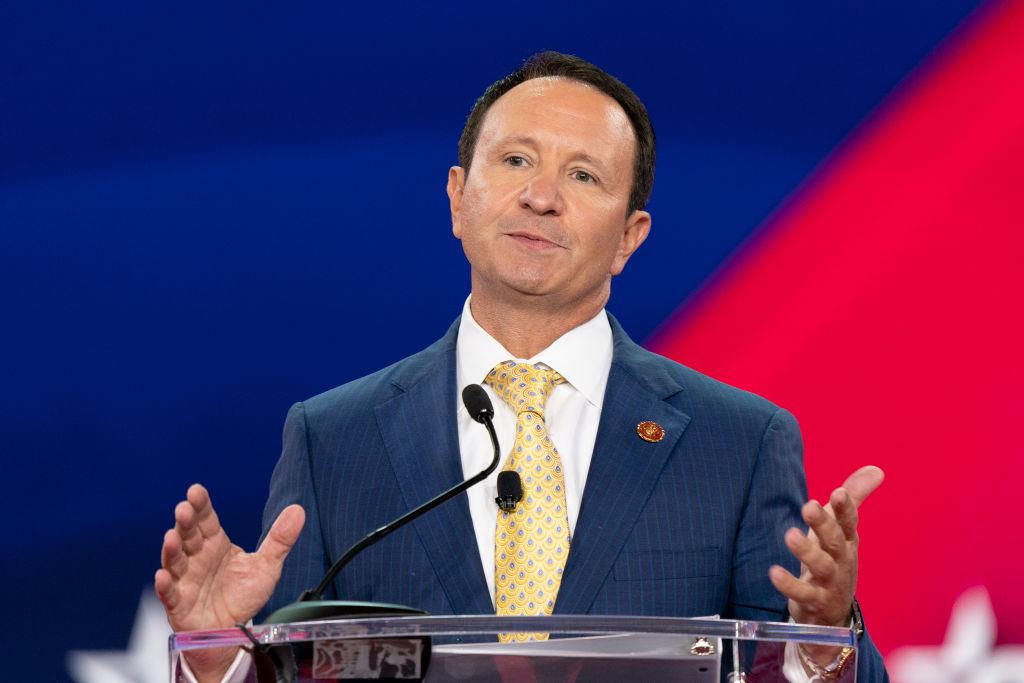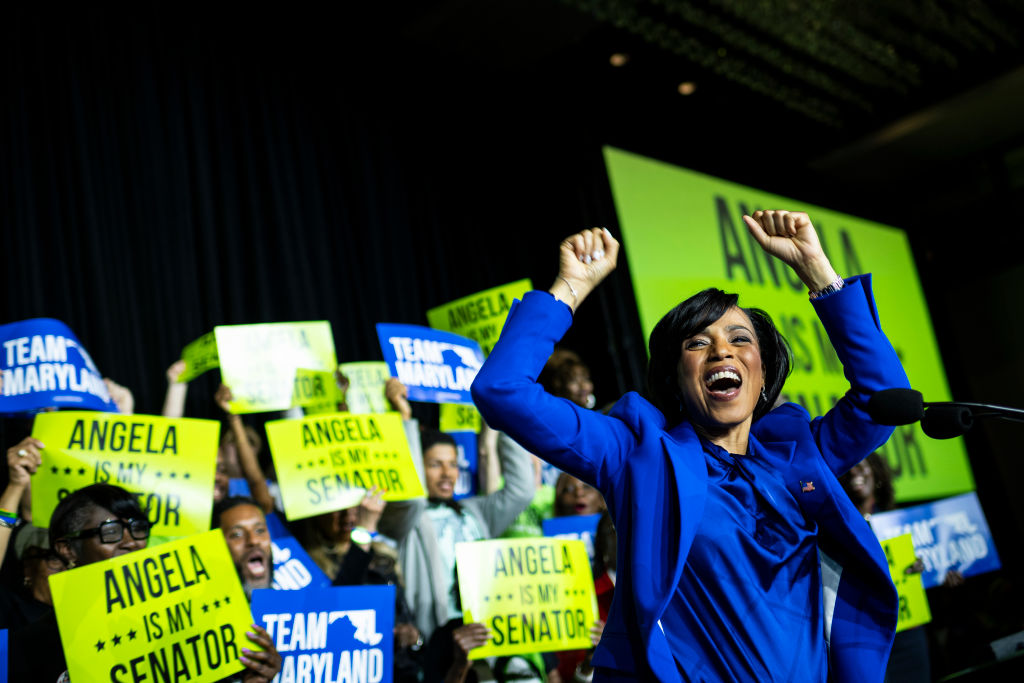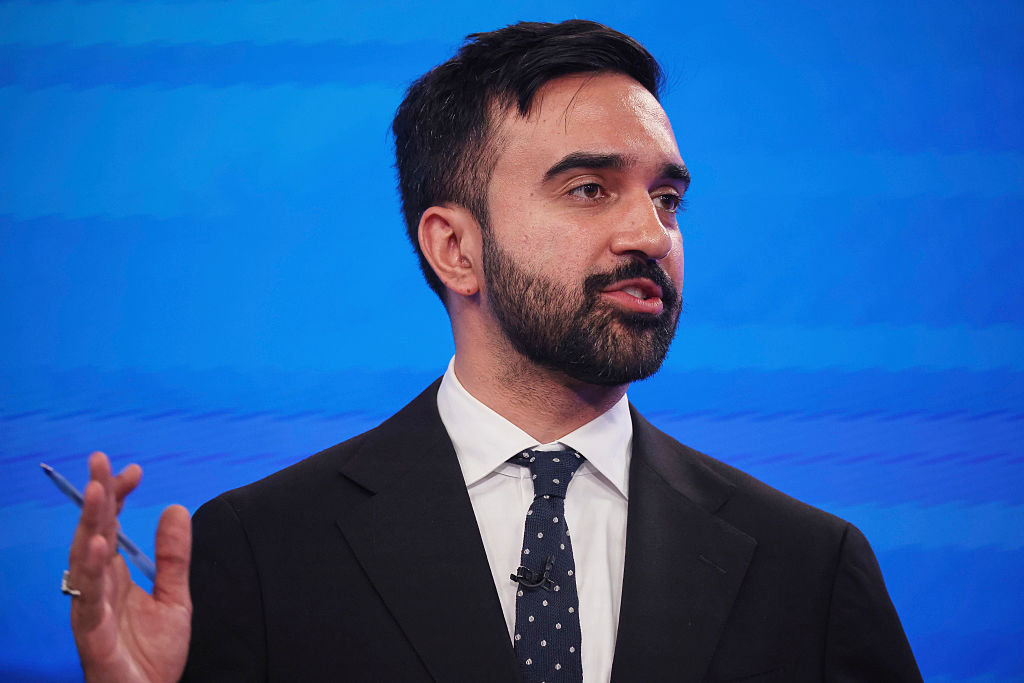Jeff Landry Wins: Louisiana Black Voters Blamed In Governor Race
Black Voters Scapegoated For Louisiana Electing Suspected White Supremacist Jeff Landry As Governor

Louisiana Attorney General Jeff Landry speaks during the CPAC Texas 2022 conference in Dallas on Aug. 4, 2022. |. Source: Pacific Press / Getty
The election of Louisiana’s new governor was a tale of two electorates as exit polling data showed nearly three times the number of white voters participated compared to their Black counterparts.
The end result was Republican Jeff Landry winning the race by receiving more than 52% of the electorate – a threshold that eliminated the need for a runoff election and flipped a seat that was held by Democratic Gov. John Bel Edwards since 2016.
But another byproduct of Saturday’s election was the scapegoating of Black voters after exit polling data showed their low turnout for a political contest in which the leading Republican has been accused of being a white supremacist who particularly champions anti-Black policies.
John Couvillon, a Louisiana-based pollster and CEO of JMC Enterprises, a data analytics and consulting firm, pointed to low Black turnout as a primary reason why Landry was elected.
On Saturday, an estimated 17% of voters who went to the polls were Black, Couvillon posted on the social media app formerly known as Twitter. The numbers weren’t much better among early voters, with just 26% of people casting ballots ahead of Election Day being Black. In total, 72% of Louisiana’s white voters participated in the election compared to 24% of Black voters, Couvillon added.
The voting along racial lines corresponded with their respective preferred candidates, with Black voters overwhelmingly supporting the candidacy of Shawn Wilson, Louisiana’s former Secretary of Transportation and Development, who is African American. Wilson got 70% of Black voters’ ballots to just 12% for Landry.
Back in 2016, Couvillon pointed out, John Bel Edwards, who is term-limited, won convincingly with 91% of the Black vote.
Considering the exit polling data and historical perspective, “Shawn got weak black turnout/did not dominate among black voters,” Couvillon concluded.
Social media influencer Chris Evans said “Black Louisianans stayed home” like last November when U.S. Senate candidate Gary Chambers lost.
Journalist Roland Martin also suggested Black voters didn’t do their part in Saturday’s election by asking: “How in the hell did Black voters in Louisiana not turn out in major numbers to keep this sadistic man out of the governor’s mansion?”
Martin’s question was in response to a social media post drawing attention to Landry’s documented history of anti-Blackness.
But New Orleans Times-Picayune investigative reporter Sam Kardelin suggested Louisiana’s Democratic Party deserves at least as much if not more blame than Black voters after Republicans significantly “outspent” their political counterparts down the home stretch of the campaign season.
“The Louisiana Democratic Party was rendered virtually irrelevant this campaign” and “were outspent by a staggering margin in September” with state Republicans spending $1.2 million that month compared to Democrats’ $28,000.
Noting that early voting rates were down across the board, voting rights experts sounded the alarm for Democrats in Louisiana last week.
Cliff Albright, co-founder of Black Voters Matter, suggested ahead of Saturday’s election that the Louisiana Democratic Party inadequately invested in Black voters.
“There’s really no discussion, and more importantly, very little lack of investment in voter mobilization,” Albright told The Hill. “That includes the party itself not putting a lot into this election, which, unfortunately, is a pattern that we’re seeing in Southern states in general and particularly in states that have Black candidates.”
Critics on social media also suggested Louisiana’s Democratic Party should be scapegoated more than Black voters.
“These takes where folks are blaming black voters in Louisiana are becoming real anti-black,” Dr. Sierra Jackson, a scientist, posted. “Louisiana usually has a jungle primary. Landry received more than 50% of the votes (this usually doesn’t happen). Dems put in minimal outreach effort with no solidified front runner.”
Jackson also said that she was in New Orleans and “could not really tell you there was an election about to happen until my brother said he early voted.” Jackson added: “Stop blaming folks that you continue to not engage.”
To be sure, Landry gave Black voters plenty of reasons to come out to the ballot box and support any of his rival candidates.
NOLA.com documented Landry’s apparent commitment to suppressing Black interests, including his “loathsome and completely racist criminal justice themed campaign ads.” Landry also supported a bill that would have made juvenile arrests information public regardless of guilt or innocence in “only East Baton Rouge, Orleans and Caddo parishes, which happen to be home to majority Black populations.”
Not to be outdone, Landry – who, of course, enjoys the support of former President Donald Trump – falsely called Black Lives Matter protesters “armed thugs.”
NOLA.com’s list of racist offenses committed by Landry doesn’t stop there.
It was only in late August when Landry said he wouldn’t participate in a gubernatorial debate because the event was sponsored by the National Urban League, a historic civil rights organization.
Participating in elections is the epitome of democracy in action. But while it’s likely that more Black voters participating in Saturday’s election could have forced a runoff election for November and prevented Landry’s immediate victory, it’s also apparent that the folks whose job it was to increase awareness of the election – particularly among Black voters – also failed.
SEE ALSO:
















